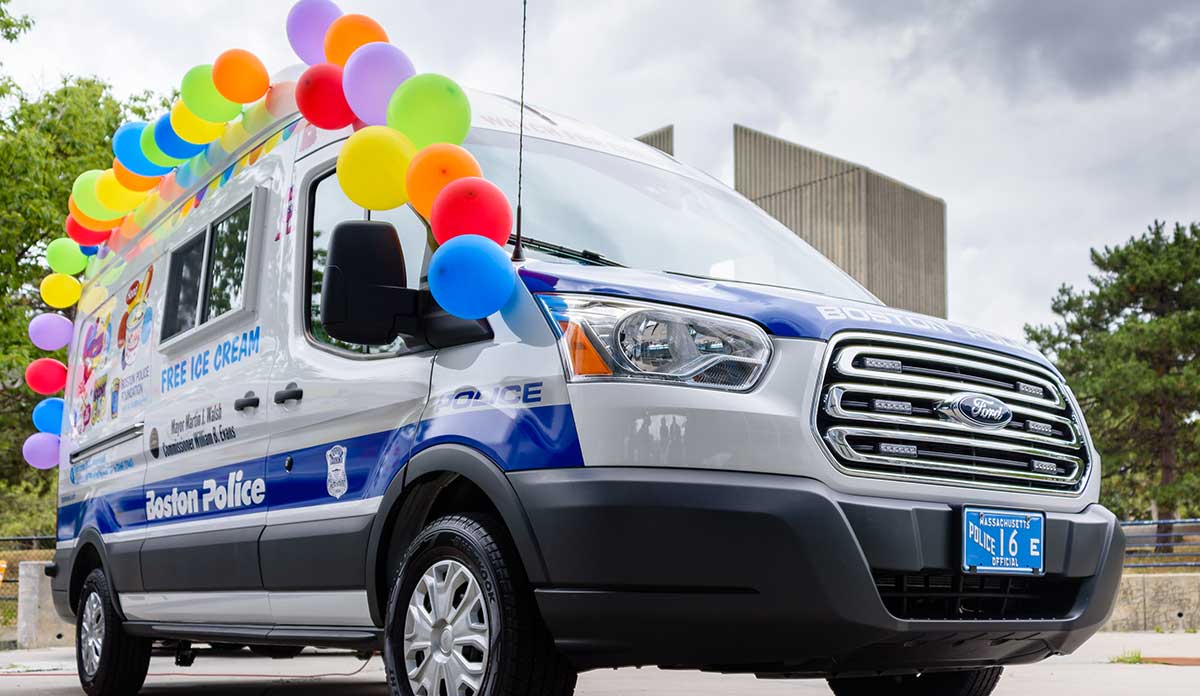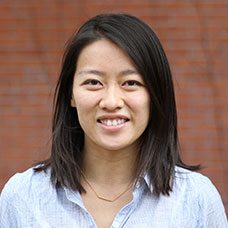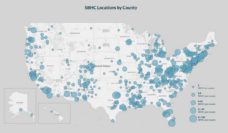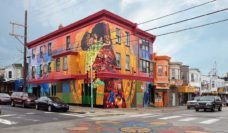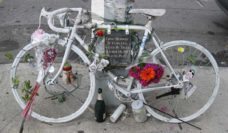PHP Fellow Qing Wai Wong spoke with Boston Police Commissioner William Evans and Conan Harris, director of My Brother’s Keeper, about Boston’s efforts to support youth in the city and the changing role of the police force.
On engaging with communities
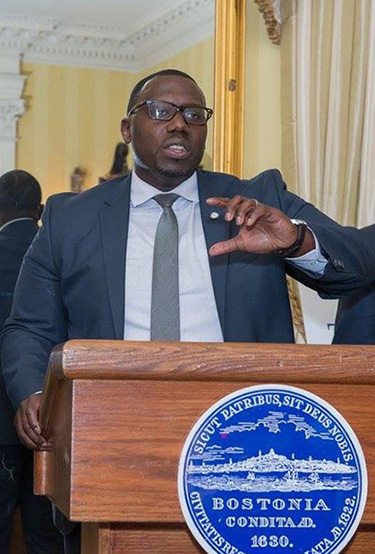
Harris: Well it comes from our mayor, right? One of the things that’s so important that our mayor comes in that space of wanting to make sure that we are all connecting to do this work. It literally is that if you have a mayor that doesn’t represent that, that won’t happen. But it was so crucial and so important to make sure we have a commissioner that represents that. So, the mayor represents that, the commissioner represents that, and that has a trickle-down effect. Now we’re all in meetings together figuring out how we should be keeping our community safe and not leaving it just to them.
Evans: I agree. That’s the key. The mayor’s mission. You know, the cops get it. Like I said the role has changed. And I go into the academy of all these new recruits and I have for the past 4 years, and I sort of set the tone, both with them and the command staff. So, I say if you’re going to come on the job, this isn’t about what you’re seeing on TV, chasing the bad guys, and locking people up. We’re here more as a social service agency now, trying to make a difference in these kids’ lives.
And I think from the top on down, even some old-timers are seeing the benefits of it. The ice cream truck out there, the kids in the school, us out there playing basketball with the kids, us engaging in youth-police dialogue. They’re seeing the results of it and the results only reinforce positive behavior. Like I said, if you told me 32 years ago that cops wouldn’t mind riding down the street in full uniform with an ice cream truck, I’d say you’re crazy. But the whole mindset has changed of what law enforcement role is now in the community.
On mentorship
Harris: There are many people who are doing mentorship already, you have coaches, you have people in churches and all that…but the effect, the way that we’re trying to support the work that is already done is training adults to be their most effective self and making sure they have a foundation on ways to mentor and be most effective. But we didn’t invent it, it’s been going on since the beginning of time. What [My Brother’s Keeper is] trying to do is enhance it. By making sure we’re training folks and putting them in the larger system so they could then connect to our most vulnerable youth.
Evans: It’s just the matter of continually working with these kids and truly making a difference so they don’t see us as the bad guy. And I always look back, when I was at the Kroc Center, and a young kid…a young child, 11, cute as a button with ponytails said to Governor Baker, “I wish you’d stop these cops from being racist.” And I said, “That’s a mindset that we have to change.” And that’s why when I say we have to get to these kids younger and younger, build their trust, and build their respect, that’s the only way we’re going to do it.
Unfortunately, when a lot of kids are 15 or 16, they’re already been brainwashed with the idea that, “Don’t talk to the police. They’re the bad guys. Don’t talk to them.” But the more we can be at the ice cream trucks, the more we can be in the schools… the more, you know, I get out, I read to the kids in all the schools and my school officers, the better relationships we can build. It’s all about mentoring these kids younger and younger. We have the Boys in Blue, where we’re working with Big Brothers, and you know I said my brothers brought me up. I see the benefit of having someone more or less look out for you and lead you on the right path. That’s what we have to do for these kids. And a lot of them have absolutely nothing.
On Peace Walks
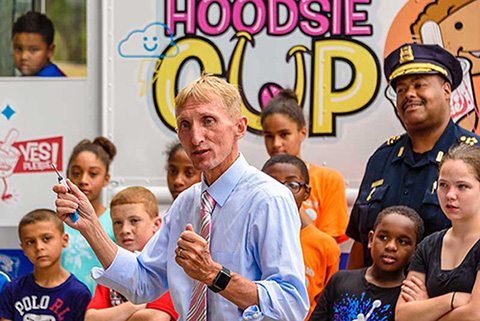
Evans: The mayor comes with us. You meet more good people. You know it’s very refreshing because you know, a lot of people… I walk places where you anticipate a little bit of fight-back because of what’s going in the country – I’m taking selfies, Walsh is taking selfies. You know, people are saying you’re doing a good job. And I always go back to all my roll calls and say I know there are some critics out there, but 99% of the people out there, they appreciate everything we do. And I think that’s what we see in the Peace Walks.
Harris: It builds community. It’s not about it being this big violence prevention strategy and all that. It builds community. And when you build community, when things happen, you have partners. You see what I’m saying? And so, that’s the thing I love most about the walks and I’ve been on a bunch of them, is seeing community being built – young people running over to the commissioner to give him high-fives and hugs. Young people taking selfies and riding over with bikes saying, “Hey what are you guys doing?”
Evans: The only problem with it is when they run by the mayor to get a selfie with me. He’ll be getting rid of me. At one house, we opened the door and he walks by the man and says “oh it’s the commissioner” – he can’t be happy, he can’t be happy. He’ll be kicking me out of my job.
On the role of the police force in creating healthier communities
Evans: I think the role is prevention and intervention more than anything, rather than incarceration. I think, identifying these kids in our interactions at such a younger age and — now that we have social workers – working with the social workers. And if it’s mental health, working with all those organizations to get them the services they need so it doesn’t develop into a deeper problem where they have to incarcerate these kids. The key is prevention and intervention in these kids’ lives.
Harris: Their role, as being a part of our community, is keeping us safe. However, they are not defined by just that. Their role is also to be mentors, their role is also to be upstanding men and women in our communities that are leaders. And so, the greatest thing about our police department is they work really hard about trying make sure they are positive aspects of our community.
Feature image: courtesy of the Boston Police Department









